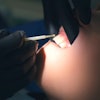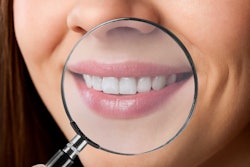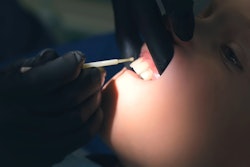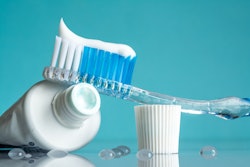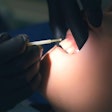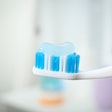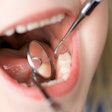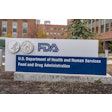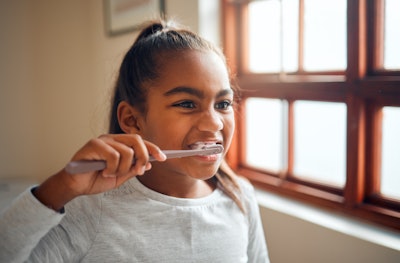
Oral care products containing fluoride-free hydroxyapatite, a natural form of calcium, may effectively reduce dental caries, according to a systematic review published in the Journal of Dentistry.
Hydroxyapatite (HAP), safe if swallowed, is an ideal fluoride substitute in toothpaste and mouthwash for people of all ages, including young children, the authors wrote.
"More studies now show that hydroxyapatite is effective as an anti-caries active ingredient in the absence of fluoride," wrote the authors, led by Malgorzata Pawinska of the Medical University of Bialystok in Poland (J Dent, October 28, 2024).
Dental biofilm harbors cariogenic bacteria that adhere to teeth and produce acids from dietary sugars. Frequent sugar intake and inadequate oral hygiene increase acid production, leading to enamel demineralization and cavity formation. HAP supports caries prevention by promoting enamel remineralization, reducing mineral loss, and impairing bacterial adherence to enamel and other oral surfaces, ultimately decreasing biofilm accumulation, they wrote.
For this review study, clinical trials were reviewed where subjects of all ages with primary, mixed, or permanent teeth used hydroxyapatite toothpastes, mouthwashes, or gels. These individuals were compared to those using placebos, no treatment, or fluoride-containing products, with outcomes measured by direct reductions in dental caries or proxies for caries risk.
The review analyzed 18 studies. Studies were rated per U.S. National Institutes of Health grading. Three authors finalized publications for meta-analysis, which was conducted using the public R statistical software, according to the review.
Clinical studies have consistently shown that HAP toothpaste can be as effective as fluoride in preventing dental caries. Early trials demonstrated a 35% to 56% reduction in caries among children using 5% HAP toothpaste compared to placebo. Later studies showed 10% HAP to be as effective as fluoride in slowing enamel caries in orthodontic patients, and HAP was more effective than fluoride for remineralizing white-spot lesions postorthodontics, according to the results.
However, the study had limitations. Future research should include additional randomized controlled trials to assess the effectiveness of various HAP concentrations and HAP toothpastes enhanced with other nonfluoride active ingredients, the authors wrote.
"HAP is an ideal substitute for fluoride in toothpaste and mouthwash tailored for young children, and new data presented in this review demonstrated that hydroxyapatite-based oral care products can be used by people of all ages," they concluded.

